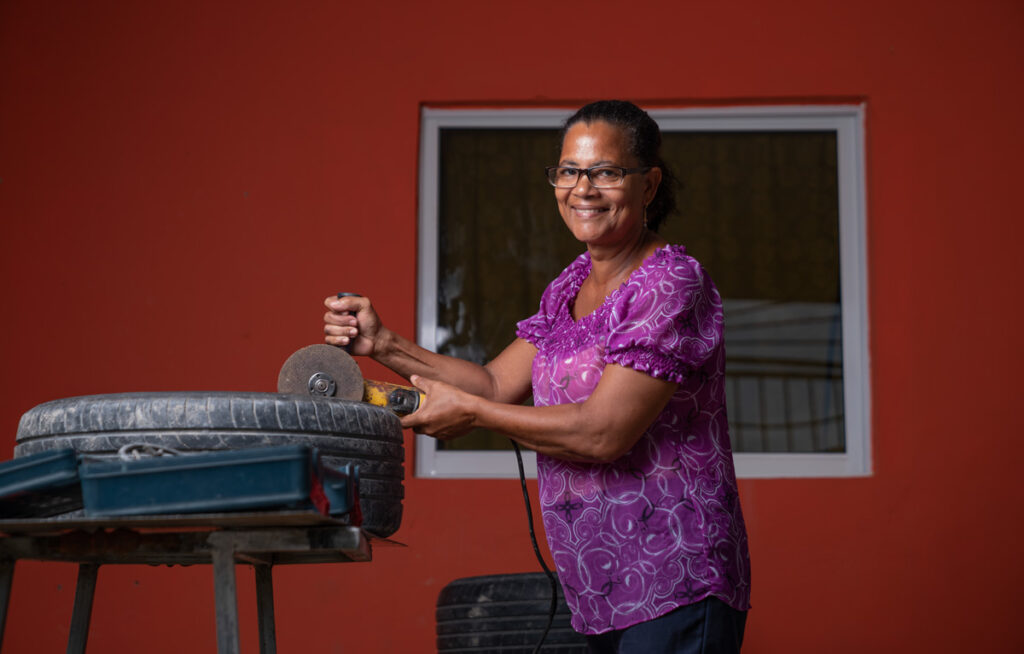45% of the global population thinks that men have more right than women to work. In the case of Spain, 11% believe this. These are some of the striking data in the Social Institutions & Gender Index 2023 (SIGI), published by the OECD Development Centre, that measures discrimination in laws, social norms and attitudes. These findings were presented at an event organized by the BBVA Microfinance Foundation and the OECD Development Centre, in Madrid’s Casa de América.
Spain, the third lowest rate of discrimination in the world
The SIGI index takes 0 as zero discrimination and 100 as absolute discrimination. Belgium stands at the top of the ranking, with just 7.6, followed by Sweden and Spain, with 9.2 (Sweden is second by hundredths of a decimal point), Italy with 9.4 and Taiwan with 9.5. The world average is 30, the European is 15 and that of OECD countries 16.
Although Spain scores well in general, there is still room for improvement in gender equality along certain indicators, such as the fact that women invest more than double the hours on unpaid work: 5 compared to just 2 in the case of men. An indicator in which Spain scores worse than the European average and that of OECD countries, placing it in the global average.
Another indicator in which Spain doesn’t cover itself with glory is the gender gap in senior management positions, 82% of which are occupied by men, although in this case the European average is similar.
Latin America has lower levels of discrimination than Asia or Africa
Latin America has a discrimination score of 22, better than the world average and much better than Asia (38) or Africa (41). Moreover, in the previous edition of the SIGI index there were only three countries with low levels of discrimination, whereas in the 2023 edition there were eight (five more). In addition, Chile and Paraguay went from medium levels of discrimination to low ones.
Costa Rica, scoring 11, followed by Dominican Republic (15), and Panama (16) are the three countries in the region with the best classification. Peru meanwhile came in with 19, Colombia with 24 and Chile with 28.
Progress has been made in Latin America and the Caribbean in recent years, particularly with regard to women’s involvement in politics; in fact, 35% of parliamentary representatives are women, the region with the best average score on this measure. Whereas worldwide 42% of respondents think that men are better business managers, in Latin America and the Caribbean this percentage drops to 21%. Nevertheless, there are issues on which the region lags behind, such as post-partum leave for fathers, which is still very limited in the region.
Additionally, as European IDB representative Fazia Pusterla noted, “Even if women currently represent around 60% of university graduates in the region, a big part of this talent pool is not being tapped to be put into its best use. Women are still concentrated in low-productivity, and hence, low-payment sectors”.
A Spanish foundation, leader in women’s strategy in Latin America
It was the OECD itself, during one of its analyses, that highlighted the BBVA Microfinance Foundation as the philanthropic body that contributes most to gender equality for development, through its work in Latin America where it serves over one million six hundred thousand vulnerable women.

The BBVAMF serves more than 1.6 million women in vulnerable conditions
Javier M. Flores, CEO of the BBVA Microfinance Foundation, explained that “gender equality is a priority if we want to achieve economic and social development that is truly sustainable and inclusive, that benefits us all”. He highlighted the importance of SIGI since “this type of discrimination perpetuates gender gaps in other contexts, such as inequality of incomes, and is a brake to progress; to speed it up we need to measure and make visible certain things that are currently invisible.”
SIGI also notes that despite the achieved progress, globally, 40% of women and girls live in coutries where gender discrimination still proves to be high or very high.
“Until gender discrimination and sexist attitudes are eliminated, no real change can happen. If discriminatory treatment continues when women apply for a loan, for example, or in selection processes to join the labor market, there will always be barriers that prevent us from achieving gender equality” points out Bathylle Missika, Head of Division – Networks, Partnerships & Gender, OECD Development Centre, and who leads the SIGI, during the presentation of this year’s index, the fifth, in Madrid.
The OECD Development Centre launched SIGI for the first time in 2009 and collects data from 179 countries.t

